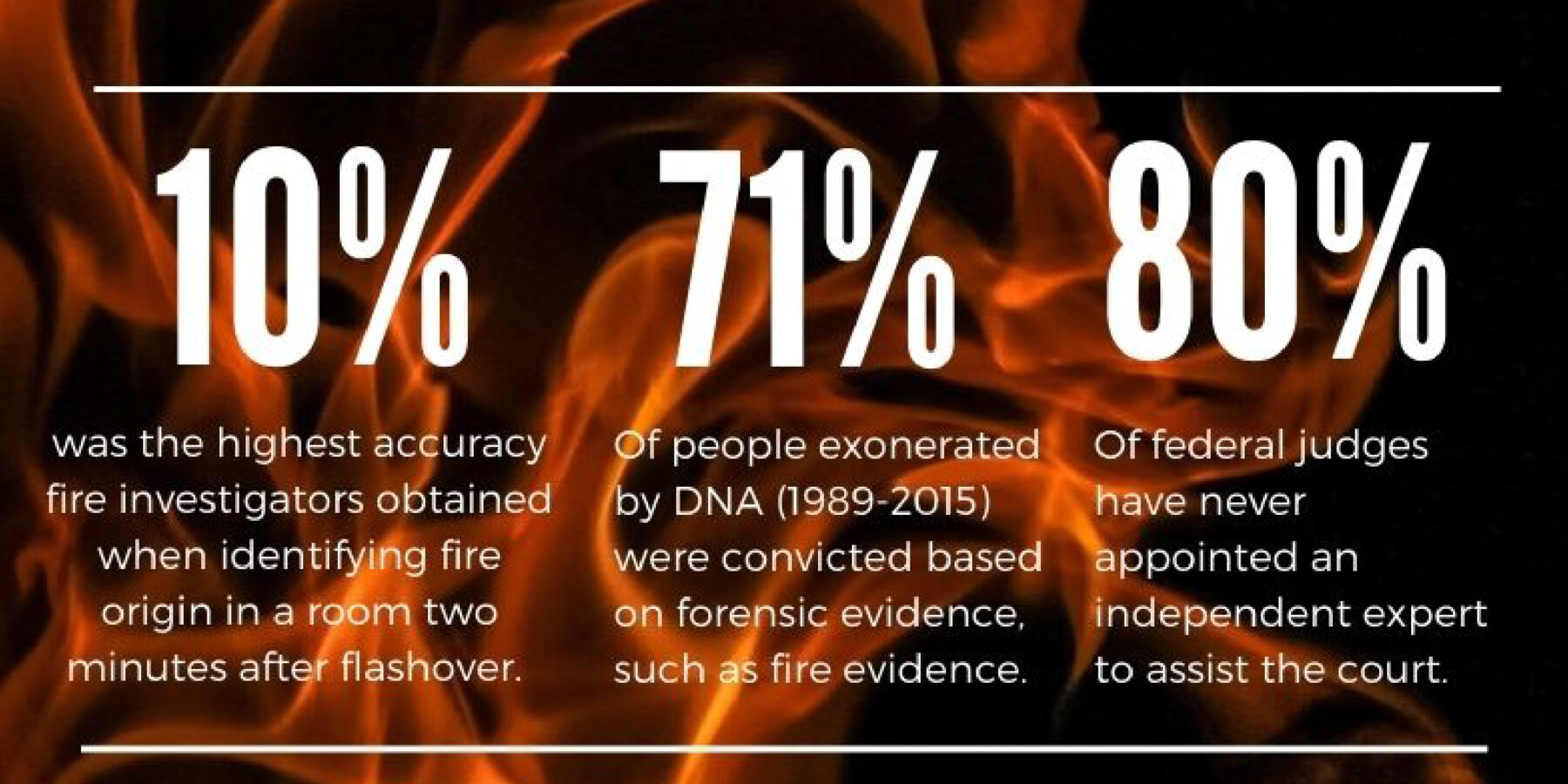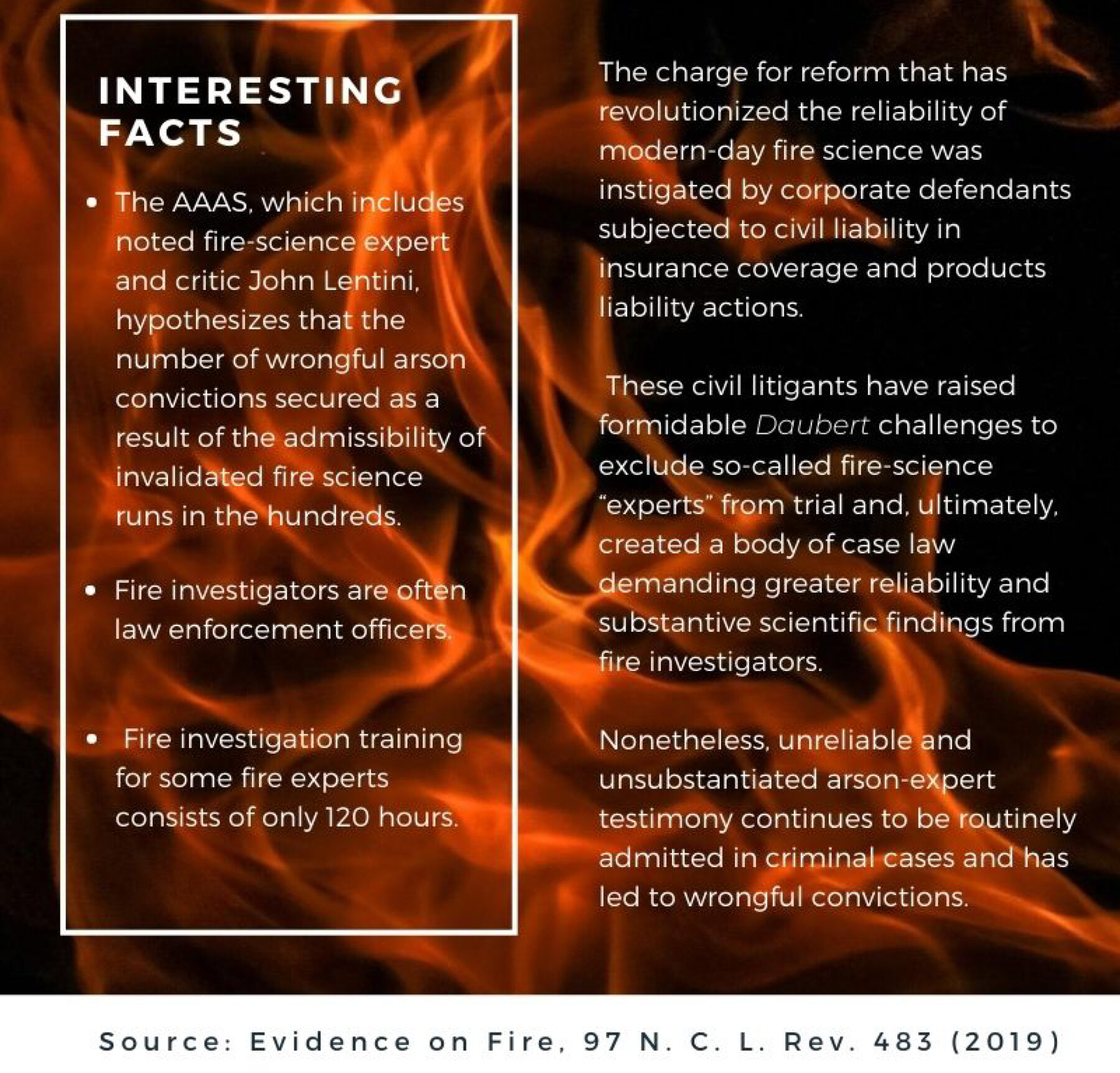Evidence on Fire
Valena Beety and Jennifer D. Oliva

Human beings have long been fascinated by the awesome and unforgiveable power of fire. From old southern stories about barn burners to The Confession Tapes’ chronical of false confessions to murder by arson, fire investigations evoke the worst of human imagination. Playing off the evocative and destructive power of fire, fire experts historically conjured up pseudomagical powers in the courtroom, regaling jurors with investigatory findings that were “more art than science” and with stories about accelerant-detection dogs’ supercanine olfactory abilities, which enabled them to pinpoint a fire’s origin. The fire “expert,” imbued with gravitas due to his uncanny ability to understand the mysteries of the element, easily awes and persuades a Western jury, which, as studies have noted, is largely composed of individuals unfamiliar with how to start, maintain, or use fire. Fire science, as it became known along its disciplines that has historically generated inaccurate expert evidence. Such faulty fire evidence has been responsible for several high-profile wrongful convictions.
